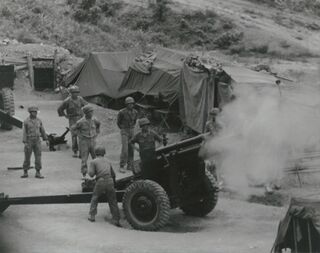Bias
How Imperialism Sexualized Asian Women
The long-term consequences of racism, sexism, and imperialism.
Posted March 24, 2021 Reviewed by Abigail Fagan

How did the Asian woman become a symbol of sexual docility, subserviency, and exoticism? While viewed as demure, Asian women have also been cast as sexual temptresses over the years, sometimes to be tamed and devoured by white men.
This was likely the result of Western Imperialism in East Asian countries through the years. There's an ugly truth in war that few want to acknowledge: sexual collateral damage—especially in America's history of military occupation overseas in Asian countries.
For example, take the Philippine-American War (1899-1902). The Filipinos fought against colonization by the U.S., but 250,000 lost lives later, they succumbed to the might of the U.S. military. The war only lasted three years, but a large number of American soldiers were stationed on the island for more than a decade to quell local rebellions using slash-and-burn techniques that left the country in waste.
"While occupying the islands, the American soldiers referred to the Filipinas as "little brown f*cking machines powered by rice," and a sex industry sprang up to cater the U.S. military men, wrote Northern California Attorney Sunny Woan in "White Sexual Imperialism: A Theory of Asian Feminist Jurisprudence," published by Washington and Lee Journal of Civil Rights and Social Justice (March 2008 Volume 14, Issue 2, Article 5).
Woan notes in the article that Filipino women were viewed as so subservient and subordinate that U.S. soldiers sexually denigrated them in a way they would never have treated their spouses or other women back home. "Filipina sex workers, for example, frequently report "being treated like a toy or a pig by the American [soldiers] and being required to do 'three holes'- oral, vaginal and anal sex."
It was this American colonialization period during the turn of the 20th century that gave rise to today’s notorious sex entertainment industry in Asia. Sex and prostitution sprang up to cater to the American military amidst the backdrop of political and economic plight, despair, and poverty where a man could have “a girl for the price of a hamburger.”
During the Vietnam War, this only intensified as the conflict took a long and brutal toll on the U.S. military and on their psyche. Consequently, several military bases were stationed in Thailand to shelter up to 70,000 American GIs at any given time for “rest and recreation." Woan writes: “With pervasive disregard for human rights, the military grimly accepts and recognizes access to indigenous women’s bodies as a ‘necessity’ for American GIs stationed overseas."
If the sexual oppression was to end with the conclusion of the Vietnam War, it’d be relegated to an abomination from the past. But today’s flourishing sex tourism industry in Thailand (and other neighboring Asian and Southeast Asian countries), should be a reminder of the remnants of Western imperialism (American and European) and military presence overseas. It is “far from being a thing of the past, but is a lived experience of many," writes Woan.
Millions of tourists from Europe and the United States visit Thailand specifically for its sex industry alone (65% were single men in one study). So while political Western colonization is absent in the Far East, it is still physically rampant in the pants of many Anglos. The desire to sexually possess, conquer, and at times humiliate a subservient Asian woman permeates our culture.
Woan reminds us that crimes against Asian women need to be filtered through the lens of race. To do otherwise, Woan believes, is to turn a blind eye to the historical impact of racism and sexism: “If we treat it like it’s nothing, then we are being complacent to racism, sexism, and here most pertinently, the repercussions of cultural imperialism.”
References
Sam also speaks on Asian cultural issues and addictions. Please go to his speaking site for more information. www.SamLouieSpeaks.com


